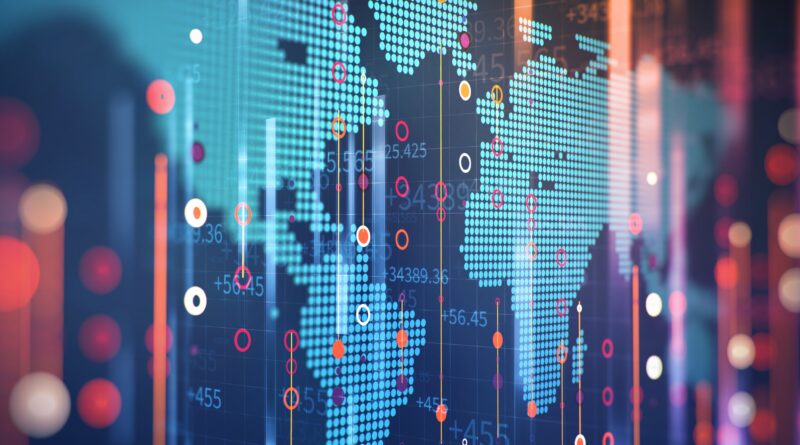What are the generations called?
There are currently 7 generations alive into which the world population can be divided.
The concept of generation is very useful in sociological studies, as each group of people born in a specific time frame has its own socio-cultural and market trends.
In this way it is possible to read people's behaviors and attitudes.
In fact, people born in the same period have their own cult films, songs and idols that they cannot give up, just as they have the same historical events behind them (sometimes traumatic or revolutionary) that shaped their values.
And it is precisely this common substratum that creates a gap between generations, sometimes preventing understanding between people of different ages and even falling into the same stereotypes.
But how is it possible that being born in a certain historical moment influences people's way of thinking, acting and communicating? Let's try to dispel any doubts by explaining what a generation is and how it is born and what today's generations are and what they are called.
Below is everything you need to know about the characteristics of today's and yesterday's generations.
read also How often do you think about the Roman Empire: what does it mean and why is it a frequent thought What is a generation and how is it born? The term generation identifies a group of people who were born in a specific period of time, lived in the same period and were marked by contemporary events, in such a way that today they share (totally or partially) the same system of values, the way to approach the present and look to the future.
Strange as it may seem, being born and experiencing certain historical moments can have repercussions or influences on individuals.
Historical, cultural and other events can in fact influence people's way of thinking and communicating.
But the same ones, whether experienced by adults or children, can lead to different results.
This explains why even generations between which just under twenty years elapse are so different.
It makes a difference, therefore, whether you are young in a period of war or peace, or enter the job market in a phase of recession or expansion of employment.
In fact, as the sociologist Karl Mannheim explains, between 16 and 25 years of age, individuals enter "public life" coming into contact with historical and political events that form a sort of "collective generational memory", composed of beliefs, beliefs, symbols and myths, attributions of meaning, which is destined to last a relatively long time.
In any case, as sociologists explain, it cannot be established a priori which characteristics events have to produce generational effects; they must certainly lead to a rupture or decisive change in people's daily lives.
read also How to find out if there are Neanderthal genes in the DNA? What are the generations called and what are their characteristics? It is certainly not easy to define the boundaries of a generation, and this is why there are often different types of classification and the division of generational groups often varies by just one year.
For example, people born after the mid-90s are in a liminal, "grey" zone, between Millenials and Generation Z.
One of the most used classifications to distinguish the different generations from each other in the West is the following: Greatest Generation It is the generation of those born between 1901-1927 and who lived through the Great Depression between the end of the 1920s and the beginning of the 1930s and who went to fight during the Second World War.
Precisely for this reason they are described as people with a strong sense of moral duty, as they fought not for personal glory but because it was "the right thing to do".
They are also described as thrifty savers and consumers.
Silent or reconstruction generation It is the generation of those born between 1928-1945, and was the protagonist generation after the Second World War.
Anchored to traditional values, such as family, marriage and work, and to the experience of war, they do not have particular faith in change.
They are known, in fact, for having formed the leadership of the civil rights movement and for having been part of the silent majority during the youth protests of the 1960s.
Finally, they have poor technological literacy: if they can, they pay in cash.
Baby boomers.
The generation of those born between 1946-1964, the generation of the demographic explosion and the economic boom.
They lived the first years of their lives immersed in a state of economic growth, which allowed them to engage in various civil and social causes, but also to give importance to their political identity and the realization of their personal objectives, which is why they are defined as optimists, individualists and consumerists.
They are the generation that experienced the highest number of events with a strong economic, political and social impact, such as the Cold War, the assassination of Kennedy and Martin Luther King, right up to the Vietnam War.
Today they are described as a privileged class, which has faith in economic prosperity.
Generation X (or transition) It is made up of people born between 1965-1980.
This is a generation that is difficult to define.
Generation 1969, the energy crisis of 1973 and 1979 with the related Austerity policies.
In Italy these were the years of lead marked by the kidnappings of the red terrorism of communist origin and the massacres of the black terrorism of neo-fascist origin.
They are the first to develop an "ecological" conscience, thanks to Chernobyl and the hole in the ozone layer, but they present a strong cynicism and rejection of the values of the previous generation.
They have little faith in justice.
read also Robin Gunningham, who he is and why he can be the face behind Banksy Millennials (or Generation Y) This is the generation born between 1981-1995/96.
It is a generation that is starting to be multicultural and immersed in digital technology.
It includes those who, faced with job insecurity, seek opportunities abroad, but not only.
They are tolerant and individualistic, and sometimes narcissistic, But they also have the ability to adapt effortlessly to different subcultures.
They are the generation of the great crisis of 2007-2013, which decided to pay attention to their quality of life, understood as time available, the limited possibility of being motivated with economic stimuli and the high level of integration in closed social groups.
Generation Z It is made up of those born between 1996/97- 2012.
They are generally present on all social networks, they are dynamic and lovers of change.
They are true digital natives, the Internet regulates their relationship with reality.
Global, multicultural, they have a less rigid concept of gender than previous generations.
They are also recognized for their strong individualistic orientation.
I am the generation that experienced adolescence during Covid.
Scholars still worry about the impact it may have had on their education.
Generation Alpha Includes those born between 2012 and the present.
There are still few studies on this generation.
What is certain is that technology has had an effect on early learning.
They seem more inclined to develop a dependence on technological devices, on the other hand they are very attentive to environmental issues and open to multiculturalism.
Covid-19 and the restrictions and Russian invasion of Ukraine are significant events that will shape the generation.
These are the seven categories, but it is important not to fall into clichés or stereotypes, as understanding the specific characteristics of each generation could help recognize generational conflicts and encourage mutual exchange, overcoming the generation gap.




